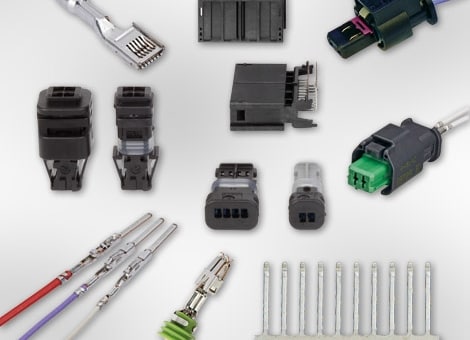Auto connectors, often referred to as automotive connectors, are essential components in modern vehicles, ensuring the seamless transmission of electrical signals and power between various electronic systems. As vehicles become increasingly sophisticated with the integration of advanced electronics, the role of reliable and efficient connectors is more crucial than ever. This article delves into the types, applications, and innovations in auto connectors, highlighting their significance in the automotive industry.

Types of Auto Connectors
Auto connectors come in various shapes and sizes, each designed for specific applications. The primary types include:
- Blade Connectors: These are flat, thin connectors that are commonly used in automotive fuse blocks. They provide a simple and reliable connection for low-current applications.
- Pin Connectors: These connectors use pins to create a connection. They are widely used in various automotive applications due to PA PRODUCTS LTD their reliability and ease of use.
- Coaxial Connectors: Employed in applications requiring high-frequency signal transmission, such as infotainment systems and GPS.
- Ring and Spade Connectors: These are used for connecting wires to a stud or screw. They are typically used in grounding and power distribution applications.
- Weather-Resistant Connectors: Designed to withstand harsh environmental conditions, these connectors are used in exterior and engine compartment applications.
Applications of Auto Connectors
Auto connectors are used in a multitude of automotive applications, including but not limited to:
- Engine Management Systems: Ensuring the reliable transmission of data between sensors and the engine control unit (ECU).
- Infotainment Systems: Connecting audio, video, and navigation systems to enhance the driving experience.
- Safety Systems: Integral in airbag systems, anti-lock braking systems (ABS), and other critical safety features.
- Lighting Systems: Providing connections for both interior and exterior lighting, including headlights, taillights, and dashboard lights.
- Power Distribution: Ensuring efficient power delivery to various electrical components within the vehicle.
Innovations in Auto Connectors
The automotive industry is continually evolving, and so are auto connectors. Some of the latest innovations include:
- Miniaturization: As vehicles incorporate more electronic systems, there is a growing demand for smaller, yet highly efficient connectors. Miniaturized connectors save space and reduce weight without compromising performance.
- High-Speed Data Transmission: Modern vehicles require connectors capable of handling high-speed data for advanced driver assistance systems (ADAS), autonomous driving technologies, and infotainment systems.
- Improved Durability: Advancements in materials and design have led to connectors that are more resistant to vibration, temperature extremes, and corrosion, ensuring longer service life.
- Smart Connectors: Incorporating sensors and diagnostic capabilities, these connectors can monitor their own performance and provide real-time data to the vehicle’s diagnostic systems.
- Wireless Connectivity: As the push for wireless technology grows, some connectors are being developed to transmit power and data wirelessly, reducing the need for physical connections and the associated wear and tear.
The Future of Auto Connectors
The future of auto connectors is intertwined with the advancement of automotive technology. As electric vehicles (EVs) become more prevalent, the demand for high-power connectors capable of handling high-voltage applications will increase. Furthermore, the rise of autonomous vehicles will necessitate
